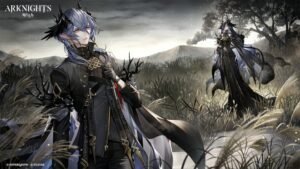After nearly 90 hours in Assassin’s Creed Shadows, I find myself looking back at how the franchise’s fans lamented that Sucker Punch beat Ubisoft to the punch in creating a game based in ancient Japan, something they had longed for almost perpetually. The two games take drastically different approaches to a very similar core gameplay loop that makes comparisons between them an inevitability at this point.
With Shadows now finally out, here is my take on what I enjoyed more in each of the two games, and which one comes out on top.
Finding Common Ground in Combat

The two games’ approach to swordplay is a good place to start considering how both of them require their protagonists to stick enemies with the pointy ends of their blades. Ghost of Tsushima’s blend of varying stances based on enemy types, Ghost Tools, grounded Skills, and Jin’s samurai training was a stellar effort from Sucker Punch back in 2020. However, the fact that Jin only ever uses the Sakai Katana and Tanto alongside a bow offered to him by Sensei Ishikawa tilts the odds in Shadow’s favor in my book.
Although I believe that Yasuke not having the ability to challenge enemies to a Standoff is a glaring omission, his samurai training had me wondering what would unfold if he were to ever challenge Jin to a duel. It also showcased Shadows’ more grounded approach to combat in comparison to the more supernatural abilities that Assassins in the past had access to. Ubisoft has struck a healthy balance between stealth and combat by including two protagonists, allowing Naoe and Yasuke to gain a distinct edge over Jin when it comes to their individual skill sets.

Anyone who has had to fight off a group of guards as Naoe can testify to her prowess with her katanas, tantos, and kusarigamas, after all – a fact that even Yasuke points out during one of Shadows’ main missions. Overall, Shadows’ weapon variety and having a protagonist for both stealth and combat gives it a distinct edge over Ghost of Tsushima, thanks to its immense build potential and RPG mechanics that improve its replayability.
Winner: AC Shadows
Living, Breathing Renditions of Japan
As far as visuals and the open worlds in both titles are concerned, both Ubisoft and Sucker Punch have created versions of Japan that will remain among my favorites for a long time to come. While Ubisoft has created a more polished, densely populated version of Japan that begs to be explored, one cannot deny that Tsushima continues to have its own appeal.

Sucker Punch’s vibrant colors and innovative approach to guiding players along to their objectives remains an impressive effort. However, Ubisoft’s new and improved Anvil Engine brings a dynamic weather system to the table that elevates Shadows above all other versions of Japan, considering how the weather isn’t just a visual treat but has tangible effects on in-game events. Leaping off a rooftop onto a frozen lake was not how I wanted Naoe to spend her winter on one memorable occasion!
Assassin’s Creed Shadows gets the win here since its take on Japan has so much to do and discover that Ghost of Tsushima simply cannot keep up with. I’ll be interested to see what Sucker Punch brings to the table when Ghost of Yotei finally gets its release later this year.
Winner: AC Shadows
Tales of Personal Identity and Loss
While Naoe and Yasuke’s personal arcs in Assassin’s Creed Shadows are compelling from a narrative standpoint, the game’s story takes a backseat to Japan’s visual splendor. Without wading too much into spoiler territory, the narrative in Shadows is ultimately a revenge story in which the Templars form only a fraction of all the targets that the samurai and shinobi need to take down in their mission to build a better Japan.

In contrast, Ghost of Tsushima’s narrative is focused on Jin’s deeply poignant tale of a crumbling personal identity, placing him in the middle of a war against enemies he cannot win against. His samurai code of honor works in stark contrast to his rising legend as the Ghost, a figure who terrifies even the most formidable Mongols.
Sucker Punch’s deft handling of his conflicts both within and without is among the many reasons Jin stands among the best PlayStation exclusive protagonists while his debut on PCs has also been well-received.
I would dive right back into Ghost of Tsushima for its narrative and that poignant ending that continues to haunt me nearly five years after its release. I wish I could say the same for Ubisoft’s effort, but Shadows’ odd pacing and forgettable villains make that quite the challenge.
Winner: Ghost of Tsushima
Different Experiences Unified By A Common Destination

Japan’s been a popular destination for several games across genres in recent years, with Nioh 2, Sekiro, and Rise of the Ronin all taking their players to its shores. But it’s Jin Sakai, Naoe, and Yasuke who have made the trip worthwhile for me.
While both titles are vastly different experiences that are unified by their choice of location and their core gameplay loop, it can be hard to pick between Assassin’s Creed: Shadows and Ghost of Tsushima on a personal note.
But objectively, it would have to be the former, considering how Ubisoft’s first real current-gen experience in its flagship franchise ticks many of the boxes that a discerning player would expect to see. While that is by no means an indication that Ghost of Tsushima is an inferior game, Sucker Punch’s stellar effort is beginning to show its age.
I’ll be waiting with bated breath to see what Ghost of Yotei brings to the table. But if Assassin’s Creed Shadows is any indication, another trip back to Japan is definitely worth a shot to me.





